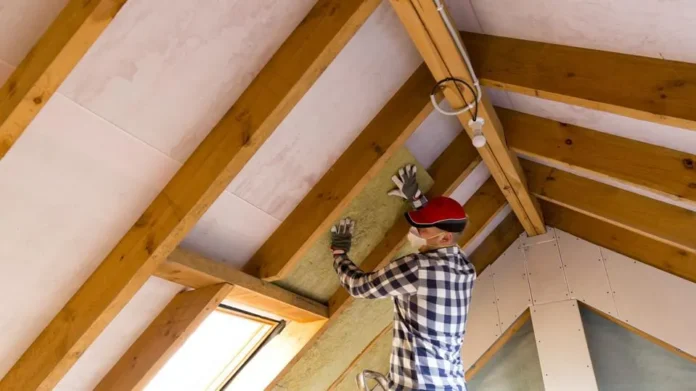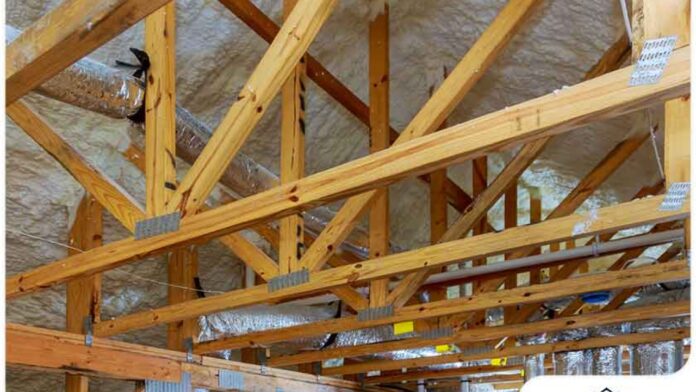Tucked away and often overlooked, the significance of adequate roof insulation for maintaining the holistic health of a building cannot be overstated. Insulation is a critical aspect that not only contributes to maintaining a stable, comfortable indoor climate, but also bolsters the longevity of your roof, enhancing its lifespan and overall performance.
In this comprehensive post, we will shine a light on the myriad of its roles in maintaining roof health, navigating through the complexities of energy efficiency, temperature regulation, moisture management, and soundproofing. We will also emphasize the positive environmental footprint of effective insulation, guide you through the process of selecting the best one to meet your needs, and underscore the necessity for professional installation and routine maintenance.
Expounding on Roof Insulation
Roof insulation, in its simplest form, is a barrier against heat flow. It curbs the rate at which heat enters or leaves your building, playing a pivotal role in sustaining an optimal indoor climate and ensuring roof health. A plethora of insulation materials exist, such as fiberglass, cellulose, and spray foam, each with their unique attributes and factors to consider all depending on the fact if you need a new one or a roof replacement.
Fiberglass, for example, is a popular, budget-friendly option, albeit one requiring meticulous installation to avoid gaps. On the other hand, spray foam offers superior coverage, but may be a pricier option. Fundamentally, roof insulation operates by creating pockets filled with air that resist heat flow, making your abode cooler in summer and warmer during winter.
The Advantages of Energy Efficiency
The contribution of appropriate roof insulation to your building’s energy efficiency can be considerable. By curbing the amount of heat that enters or leaves your premises, this process lightens the burden on your heating and cooling systems, leading to potential cost savings. Additionally, a well-insulated home is less demanding on energy for heating and cooling, subsequently reducing its carbon footprint. It’s a two-pronged victory – a lighter utility bill for you and a helping hand to our planet!
Regulating Temperature for Comfort
A highly valued benefit of insulation is its role in ensuring a consistently comfortable indoor temperature. Insulation impedes heat exchange between the interior and exterior of your building, facilitating a steady indoor climate regardless of external weather variations. By warding off temperature extremes, insulation fosters a conducive and pleasant living or working space.
Managing Moisture and Condensation
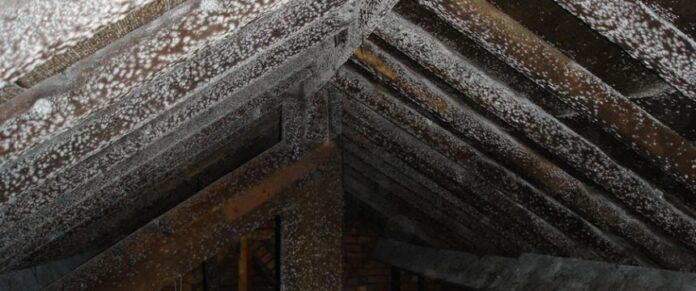
Correctly installed insulation, supplemented by effective ventilation, is critical in managing moisture and averting condensation-related problems. It reduces the probability of condensation accumulation, which can instigate mold growth and structural harm. It also shelters roofing materials from potential damage due to extreme temperature fluctuations and harsh weather, contributing to the overall health and longevity of your roof.
The Soundproofing Perks
Another noteworthy perk of insulation is its capacity for soundproofing. It curtails the transmission of external noise into your premises, fostering a more serene and peaceful indoor ambiance. This is particularly beneficial for homes nestled in bustling urban centers or in the vicinity of airports, where external noise could prove to be a significant disruption.
Staving off Ice Dams
During the chill of winter, appropriate insulation serves a crucial role in staving off the formation of ice dams on roofs. Ice dams materialize when heat from the interior of a home seeps onto the roof, melting snow which then refreezes at the edges. Appropriate work minimizes this heat loss from the interior of its surface, thereby preventing the formation of ice dams and potential ensuing water damage.
Impact on Longevity
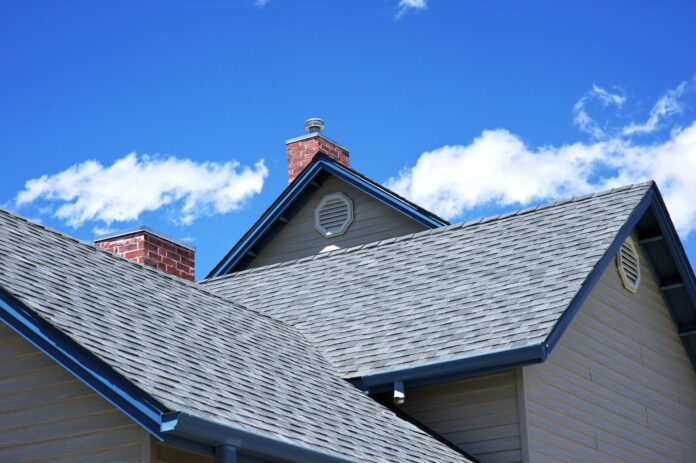
Insulation doesn’t only regulate your indoor climate or manage moisture; it also significantly affects the lifespan of your roof. By forming a protective layer that shields your roof from the harsh elements and significant temperature variations, it ensures your materials don’t deteriorate prematurely. Consequently, the proper application of insulation contributes to extended roof life, resulting in cost savings from reduced repair and replacement frequency. However, it’s not just about the money; a longer-lasting roof also reduces waste and the need for new raw materials, ultimately contributing to environmental sustainability.
Environmental Impact
Roof insulation also leaves an indelible mark on the environment – a positive one. With an efficiently insulated area, the energy required to heat or cool your home reduces drastically, resulting in lower carbon emissions. Consequently, insulating your roof is a step forward in embracing greener living and making a positive environmental impact. Roof insulation plays a vital role in achieving green certifications such as LEED (Leadership in Energy and Environmental Design) and others, which are recognized globally. Therefore, by investing in proper roof protection, you’re not only creating a comfortable indoor environment but also contributing to the global sustainability movement.
The Green Impact
Roof insulation is a cornerstone of eco-friendly building practices. By enhancing energy efficiency and reducing a building’s carbon emissions, insulation significantly contributes to sustainable construction. Additionally, it may aid in securing green certifications such as LEED, thereby augmenting the overall appeal and market value of your property.
Selecting the Ideal Insulation
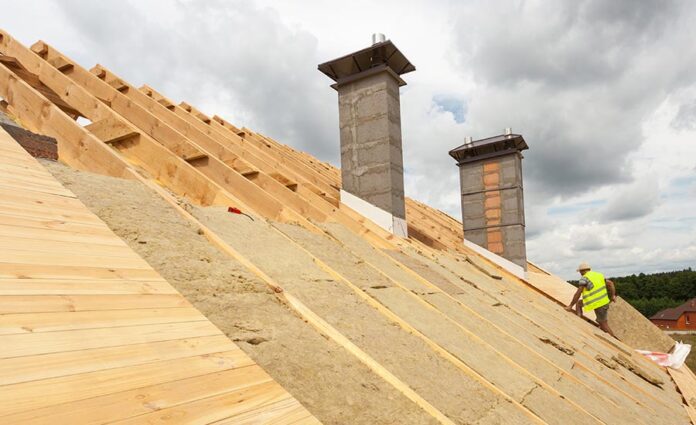
With roof insulation, there’s no universal solution that fits all scenarios. It’s imperative to consider factors like the insulation’s R-value (its resistance to heat flow), thickness, and compatibility with your specific climatic and building requirements. Collaborating with a professional can assist you in making an informed decision and ensure the effectiveness of your insulation.
Installation and Maintenance: Crucial Aspects
Proper professional installation of roof insulation is key to reaping its maximum benefits. In addition to this, regular inspection and upkeep of your insulation are vital to maintaining its effectiveness over the long haul. Indicators of insulation deterioration or damage, such as dampness, mold, or unusual spikes in energy bills, should be addressed promptly to preempt further complications.
Conclusion
In sum, proper roof insulation plays an essential, multifaceted role in maintaining both the health and longevity of your roof and the overall efficiency of your building. From maintaining comfortable temperatures and energy efficiency to managing moisture and offering soundproofing benefits, its advantages are diverse and substantial. It’s essential to make an informed choice when selecting insulation and to ensure its correct installation and regular upkeep. So, let’s give insulation the recognition it deserves – and prioritize it in our roof maintenance and improvement endeavors!
